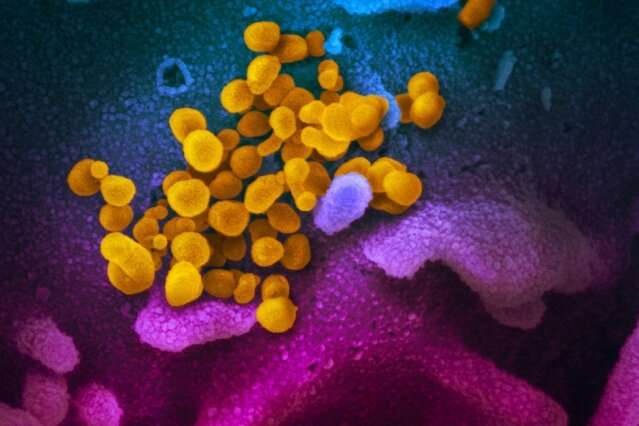Impaired blood clotting may explain higher COVID-19 risk

A new review suggests that higher-than-normal levels of an enzyme involved in blood clot prevention may be a common risk factor for developing COVID-19—a respiratory disease caused by the novel coronavirus SARS-CoV-2—in some populations. The review is published in Physiological Reviews.
People with diabetes, high blood pressure and heart, lung or kidney disease have a higher risk of developing COVID-19. In addition, people with preexisting medical conditions typically become sicker when infected with SARS-CoV-2 than those in otherwise good health. Research has found that one of the leading causes of death from COVID-19 is hemorrhage or bleeding disorders and that one of the characteristics of the disease is overactivity of the system responsible for removing blood clots (hyperfibrinolysis).
Elevated levels of plasminogen and plasmin have been found to be a common factor in people with diabetes and preexisting heart, lung and kidney conditions. Plasminogen is an inactive substance in the blood. When substances in the cells of the blood vessels activate plasminogen, it generates plasmin, an enzyme that removes blood clots from the blood. Higher-than-normal levels of both of these chemicals can lead to severe bleeding.
Studies report that more than 97% of people hospitalized with COVID-19 have increased levels of D-dimer, a protein in the blood that is produced when a blood clot dissolves. D-dimer levels are associated with the amount of virus detected in the body and continue to rise as the severity of COVID-19 increases. This is particularly true in people who develop the often-fatal complication of acute respiratory distress syndrome (ARDS). "In contrast, D-dimer levels decreased to control levels in [COVID-19] survivors or non-ARDS patients," the review's authors wrote. "The time [period] for the elevated D-dimer [to go] down in mild [cases] or survivors is dependent. Generally, it takes at least one week for mild [cases] but longer for severe patients," explained Hong-Long Ji, MD, Ph.D., corresponding author of the review.
"Measurements of plasmin(ogen) levels and its enzymatic activity may be important biomarkers of disease severity" in people with COVID-19, the authors wrote. In addition, treating hyperfibrinolysis "may prove to be a promising strategy for improving the clinical outcomes of patients with [additional medical] conditions," they added.
More information: Hong-Long Ji et al. Elevated Plasmin(ogen) as a Common Risk Factor for COVID-19 Susceptibility, Physiological Reviews (2020). DOI: 10.1152/physrev.00013.2020


















